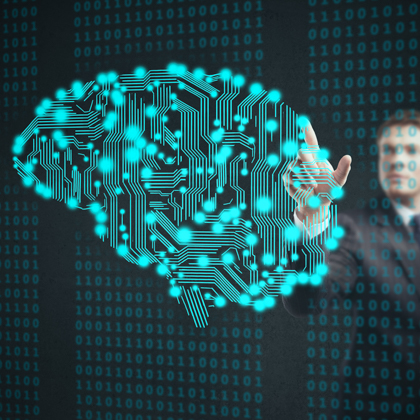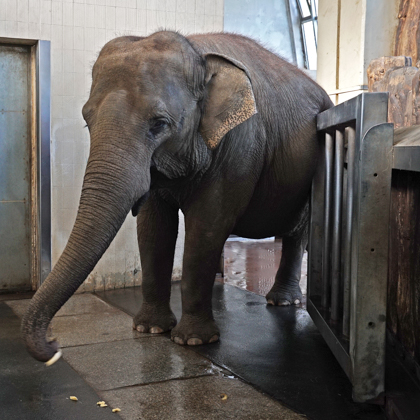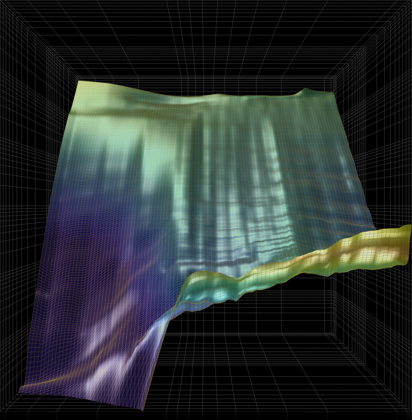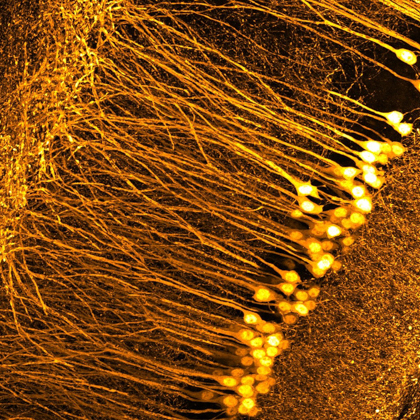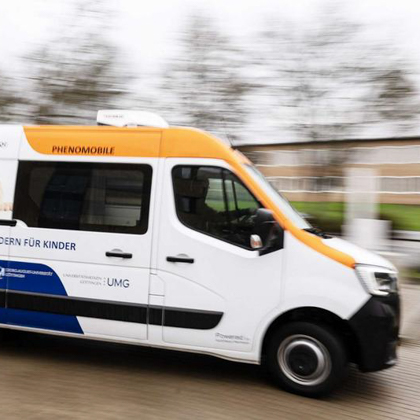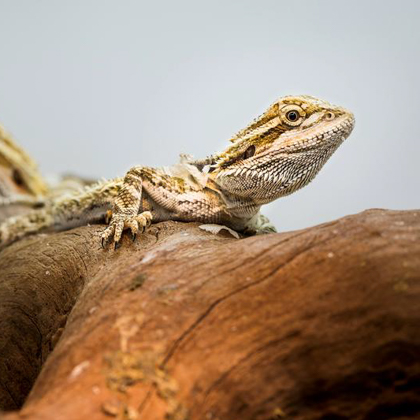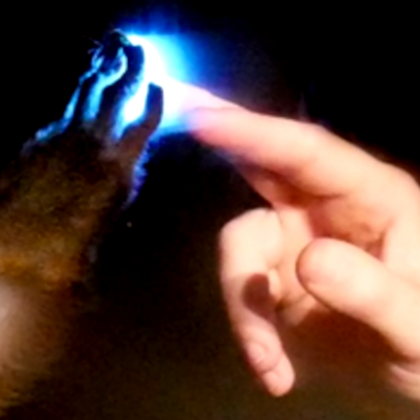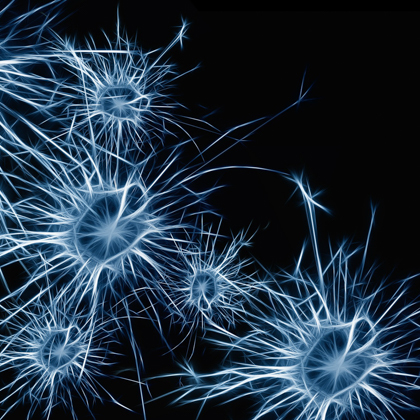Bernstein Network News. Find the latest news from our researchers regarding current research results, new research projects and initiatives as well as awards and prizes.
AI helps understand learning processes
How does the brain learn spatial information? Neural computation researchers are using artificial intelligence to explore this question.
A Berlin elephant that peels bananas
A team from Humboldt University and the Zoo Berlin report on the banana-peeling elephant Pang Pha at Zoo Berlin in the new issue of the journal Current Biology.
How the brain slows down when we focus our gaze
Changing between slow and fast integration of information, the brain can flexibly modulate the timescales on which it operates. This is the result of a new study by an international team of researchers, now published in the journal Nature Communications. Their analysis of experimental data from the visual cortex and their computer simulations also provide an explanation for how different timescales can arise and how they can change: the structure of the neural networks determines how fast or slow information is integrated.
Evolutionary origins of the brain
Human Frontier Science Program funds research project coordinated in Göttingen.
Function follows form in neuronal networks
Information transfer in the brain relies on the activation of functional neuronal chains that are embedded within a highly recurrent network. Obviously, neuronal activity should neither fade along the chain nor expand uncontrollably activating contextually irrelevant regions of the network, both entailing a loss of information. It has been proposed therefore that the brain must operate near a critical point of a phase transition between fading and explosive neuronal activity dynamics. Considered as a branching process, active individual neurons should then, on average, activate exactly one further neuron during activity cascades that have been termed neuronal avalanches. Put into a simple phrase: "Fire a neuron – Hire a neuron".
Scallop Eyes as Inspiration for New Microscope Objectives
Neuroscientists at the University of Zurich have developed innovative objectives for light microscopy by using mirrors to produce images. Their design finds correspondence in mirror telescopes used in astronomy on the one hand and the eyes of scallops on the other. The new objectives enable high-resolution imaging of tissues and organs in a much wider variety of immersion media than with conventional microscope lenses.
The PHENOMOBILE – Research with children for children
Innovative and unique worldwide: researchers from UMG and the University of Göttingen are developing a mobile examination laboratory for decoding early childhood development.
Competition between brain hemispheres during sleep
Human beings are bilaterally symmetrical. As such, our brains are made of two halves called hemispheres, that communicate with each other with specialized fiber tracts running across the midline. While each hemisphere tends to deal with the senses (vision, hearing, touch) and motor control of the opposite side of the body, we are generally not aware of this partitioning of function, thanks to constant inter-hemispheric communication. In humans, the two hemispheres are also specialized for certain functions: language areas, for example, are typically in the left hemisphere.
You or me: who gets the higher reward?
Humans and monkeys coordinate conflicting interest to maximize their profits
Memories could be lost if two key brain regions fail to sync together, study finds
Learning, remembering something, and recalling memories is supported by multiple separate groups of neurons connected inside and across key regions in the brain. If these neural assemblies fail to sync together at the right time, the memories are lost, a new study led by the universities of Bristol and Heidelberg has found.



